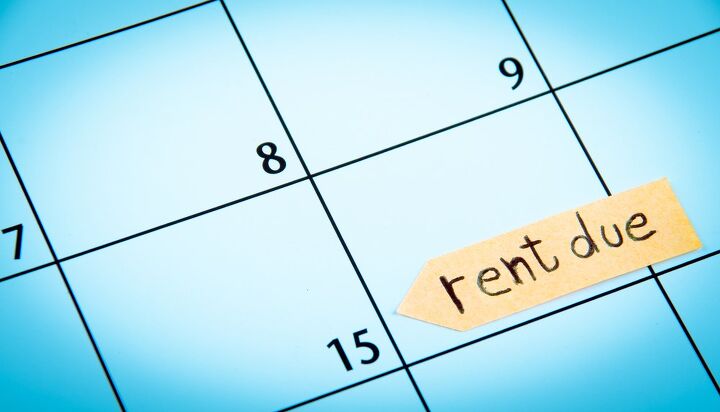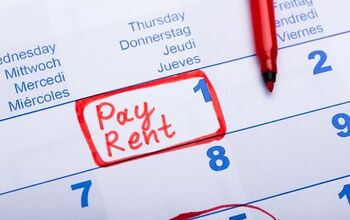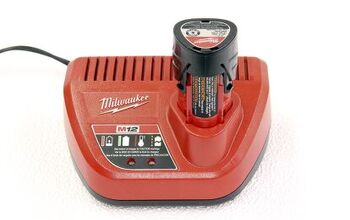Can A Landlord Refuse To Accept Rent? (Find Out Now!)

No one loves to pay rent. Often many of life’s stresses stem from a monthly rent payment. When you gather the money and finally get the payment to your landlord out on time you may feel a rush of relief. That relief may be short-lived, however, once you see that your landlord has refused to accept your rent payment.
It might seem crazy for a landlord to refuse your rent. It is legal tender after all, and who doesn’t like money? But when a landlord refuses your rent payment there is likely a reason, and you should do your research to find out what that reason is.
Your landlord has the right to not accept rent in several circumstances. Make sure you paid the full rent amount as the landlord can refuse any partial rental payments. Check your lease to ensure it has not expired. If the lease terms ended your landlord can refuse to accept rent. If you are in the eviction process with your landlord then he or she has the right to refuse rent as well.
When your rent is returned there may be many questions swimming in your head. Do some initial research before you make any rash decisions or simply send the payment again. This may help you get to the root of the issue quickly and take the smart legal steps toward a solution.
Understand Landlord Tenant Law
When your landlord refuses your rent payment, it may come as a shock. Perhaps you are aware of your landlord’s motivation but it may be quite confusing. Regardless, it is very important you understand your rights as a tenant, versus the rights your landlord has before you proceed.
Review the tenant rights in your state. Pay particular attention to details that apply to eviction proceedings, lease terms and payment methods. There are several reasons your landlord may refuse rent, but they most often involve payment, payment method, or lease terms.
Are You Paying Full Amount?
If you are paying your rent on time and there are no outstanding issues then the landlord should accept your rent payment. One exception to this is if you pay only a partial amount of the total rent. If you do not pay the full rental amount the landlord has the right to refuse the partial payment. This clause is often written into the standard lease. Be sure to review your lease thoroughly before taking issue with your landlord.
Did Your Rent Go Up?
Inflation and cost of living often change the cost of rents. Even in rent-controlled and rent stabilized buildings, your rent will still gradually increase. This increase is normally reflected in a new lease. However, if you have a month-to-month lease or a different type of rental agreement, your landlord may send an addendum via certified mail.
Be sure you read any correspondence you receive from your landlord. If you miss a rent increase you may pay the old rent amount. If so, the landlord has the right to return your payment as it is incomplete.
Payment Methods Matter
Your landlord also has the right to refuse rental payment if you are paying in a method he or she does not accept. Most rental agreements include authorized forms of payment. This is another reason to clearly review your lease.
If for some reason you are unable to pay your rent using your standard form of payment you should contact your landlord as soon as possible. More often than not the landlord will work with you to find a payment method that works for both parties.
The Lease Is Up
A landlord can also refuse a rent payment if the rent contract has ended. Some leases, especially month-to-month leases, may require a notice from the landlord and 30 days notice before you must vacate. Other leases are a set period of time. Often these leases are longer and it is written in the lease that unless the lease is renewed then the tenant must vacate on a specific date.
If your lease has ended and you have not signed a new one then your landlord can refuse your rent payment. If this is the case, the odds are the landlord will not be renewing your lease, or the terms or the lease (i.e. price of rent) will be changing in a new contract. Either way, it is best to reach out to the landlord as soon as possible to understand the next steps.
The Eviction Process Started
If your landlord has begun the eviction process or you break the lease for any reason, not just financial, he or she can refuse your rent payment. You may think that because your landlord is evicting you for reasons that do not include rental payment that he or she cannot refuse, but refusal is permitted.
Once the eviction process begins, for any reason, the landlord is seeking to remove you from the unit so rent will likely be refused. The only payments the landlord will likely accept are arrears for past rent or damages.
Your Landlord Refuses Rent, Now What?
- Check Your Lease. Confirm that your lease has not ended. Also confirm that the amount of rent you paid and the payment method are all within the lease terms.
- Re-Send Rent Via Certified Mail. If you find that the landlord has refused your rental payment for no legal reason you should re-send the payment. The landlord may have made a mistake, or perhaps there is another issue you are unaware of. Regardless, keep the returned payment documents (i.e. envelope with return label). Send a new rent payment via certified mail to ensure the landlord receives the new payment.
- Reach Out To Your Landlord. If your landlord refuses to accept your rent and you can not understand why, you should reach out. An e-mail or documented communication is always best. When a landlord refuses your rent payment there may be a larger issue at hand. You should do your best to have as much documentation on the matter in case the issue escalates.
Sealing It Up
When a landlord refuses to accept your rent you may feel jolted and thrown for a loop. Be aware that a landlord refusing payment is often a red flag and a sign of a larger issue. The first step you should take is to ensure your landlord has refused your rent legally.
Remember that your payment method matters, as well as when you pay the rent and how much you send. If you are in the eviction process the odds are that is the reason your landlord has not accepted your rent. This refusal is within your landlord’s rights.
If you can not find any legal reason why your landlord will not accept your rent then you may want to reach out. Be sure your conversation is documented (e-mail may be a great way to communicate this). Try resending the rent via certified mail, and also be sure to hold on to the refused rent payment for your records.
Related Questions
Can I Pay My Rent With A Credit Card?
You can sometimes pay your rent with a credit card if your landlord accepts this form of payment. Before you pay your rent using a credit card, however, be aware of all the potential fees you can incur. When you pay rent using a credit card you often need to use a third party to make the transaction. The third party will charge a service fee that is also a percentage. These fees add up over time. Even if your credit card has a cash back rewards program, you may still end up paying hundreds of extra dollars over the course of the year.
How Late Can I Send My Rent Without Being Penalized?
Many landlords do not have a grace period when it comes to rent payments. This means if rent is due on the first of the month, there may be a penalty if it is received or postmarked later than the first. Be sure you fully read and understand the lease terms when it comes to rent payment to ensure you do not incur any late fees. If there is a grace period it is almost always noted in the lease. If you have questions about exactly when your rent is due you should contact your landlord in writing.
Can My Landlord Force Me To Pay Rent In Cash?
Your landlord may offer cash as an option to pay your rent. Some Landlords do not like to accept cash as payment – especially via mail as it is difficult to account for in the mailing process. If your landlord does accept cash as a form of rent payment they should also offer alternatives.The only time your landlord can insist on cash as a form of payment is if another form of payment did not work (i.e. a check bounced). If your landlord insists on rent in cash, be sure to insist on a receipt, and inquire on the laws in your state.

Tom Gaffey is an expert writer who currently resides in Washington D.C. Tom has a passion for real estate and home improvement writing, as well as travel and lifestyle writing. He lived the last twelve years in Hawaii where he worked closely with luxury resorts and event planners, mastering his knowledge of aesthetics and luxury products. This is where he found his passion for home improvement and a keen interest in DIY projects. Currently, Tom resides in Washington D.C, and also working on his debut fiction novel.
More by Tom Gaffey
















![10 Most Dangerous Neighborhoods in Baltimore [Updated]](https://cdn-fastly.upgradedhome.com/media/2023/07/31/9075655/10-most-dangerous-neighborhoods-in-baltimore-updated.jpg?size=350x220)










